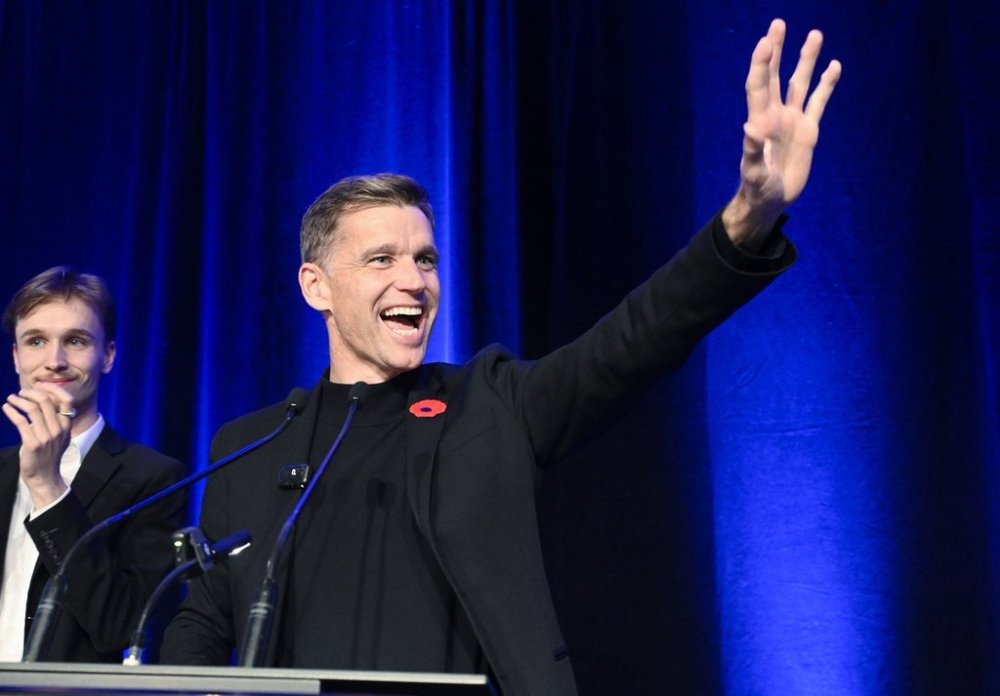Four things on Quebec’s municipal elections
Advertisement
Read this article for free:
or
Already have an account? Log in here »
To continue reading, please subscribe:
Monthly Digital Subscription
$0 for the first 4 weeks*
- Enjoy unlimited reading on winnipegfreepress.com
- Read the E-Edition, our digital replica newspaper
- Access News Break, our award-winning app
- Play interactive puzzles
*No charge for 4 weeks then price increases to the regular rate of $19.00 plus GST every four weeks. Offer available to new and qualified returning subscribers only. Cancel any time.
Monthly Digital Subscription
$4.75/week*
- Enjoy unlimited reading on winnipegfreepress.com
- Read the E-Edition, our digital replica newspaper
- Access News Break, our award-winning app
- Play interactive puzzles
*Billed as $19 plus GST every four weeks. Cancel any time.
To continue reading, please subscribe:
Add Free Press access to your Brandon Sun subscription for only an additional
$1 for the first 4 weeks*
*Your next subscription payment will increase by $1.00 and you will be charged $16.99 plus GST for four weeks. After four weeks, your payment will increase to $23.99 plus GST every four weeks.
Read unlimited articles for free today:
or
Already have an account? Log in here »
MONTREAL – Voters in roughly 1,100 municipalities across Quebec chose their local leaders on Sunday. Here are four things to know about the province’s municipal election results.
Montrealers have voted for change
After eight years of the left-wing government of outgoing Mayor Valérie Plante, Montrealers have chosen centrist candidate Soraya Martinez Ferrada as the city’s new mayor. Martinez Ferrada, who arrived in Canada as a Chilean refugee in 1980, served in the cabinet of ex-prime minister Justin Trudeau before running to lead the Ensemble Montréal party.

With more than 80 per cent of polls reporting, Martinez Ferrada had 43 per cent of the vote, compared with 36 per cent for Luc Rabouin, leader of Plante’s party. Martinez Ferrada’s policies include taking four years to end the tent cities across the island, and reviewing the bike lane network with an eye to removing paths that have caused the biggest headaches to residents, businesses and motorists.
And while Montrealers chose Martinez Ferrada, they also gave tens of thousands of votes to two other mayoral hopefuls — right-of-centre candidate Gilbert Thibodeau and leftist Craig Sauvé — a sign that voters wanted change but were unhappy with both leading parties.
Quebec City gives major vote of confidence to Bruno Marchand
After winning his first mayoral campaign by 0.4 per cent in 2021, Bruno Marchand was elected Sunday with more than 49 per cent of the vote, compared to 23 per cent for his closest rival, businessman Stéphane Lachance. Sam Hamad, a former provincial Liberal cabinet minister, finished third with 14 per cent.
Marchand says his win is a signal that Quebec City residents want a tramway, a major public transit project that for years has faced serious headwinds in the city. Construction on the project has barely started.
“I am very proud, but … we are taking it with humility,” he told reporters after his win. “Humility to say that if we don’t unite people, then our city will continue to have major challenges.”
Ex-federal politicians running Quebec cities
Other than Soraya Martinez Ferrada, another former member of Trudeau’s cabinet will be running a big city in Quebec. Marie-Claude Bibeau, who has held the national revenue, agriculture and international development portfolios, was elected mayor of Sherbrooke, in the Eastern Townships region. She was an MP between 2015-2021.
Steven Blaney, who was a minister in the Conservative federal government of Stephen Harper, has been elected mayor of Lévis, located on the south shore of Quebec City. Blaney was a Tory MP between 2006-2021, and held the veterans, francophonie, and public safety portfolios.
Guy Caron, an MP with the NDP between 2011-2019, won his second mandate as mayor of Rimouski.
One man, two cities
Yves Lévesque, who was mayor of Trois-Rivières between 2001-2018, has been elected mayor of Shawinigan, located about 30 kilometres north.
Levesque left municipal politics in 2018 for health reasons, and ran three consecutive failed bids with the federal Conservatives to represent the riding of Trois-Rivières, in 2019, 2021 and 2025.
He won comfortably on Sunday night, with just under 52 per cent of the vote over Jacinthe Campagna, who earned slightly less than 30 per cent.
This report by The Canadian Press was first published Nov. 2, 2025.

